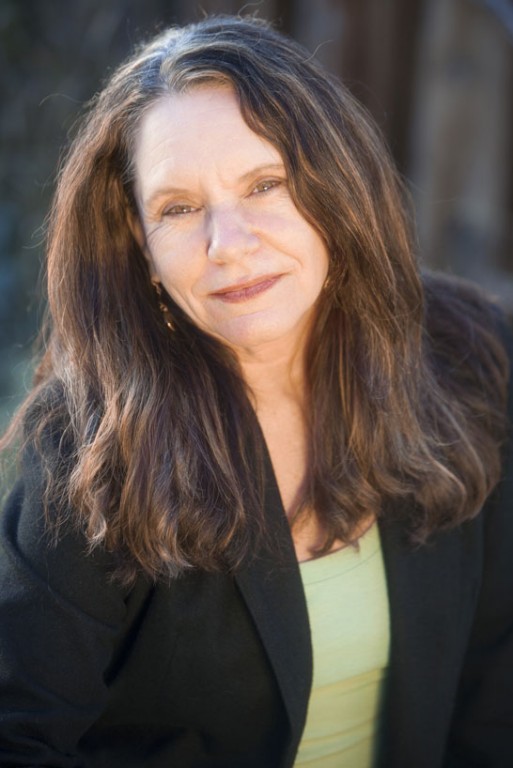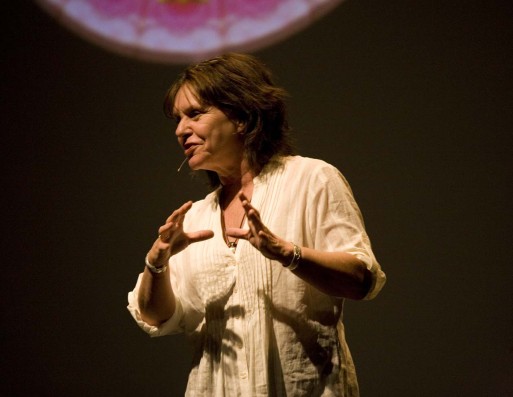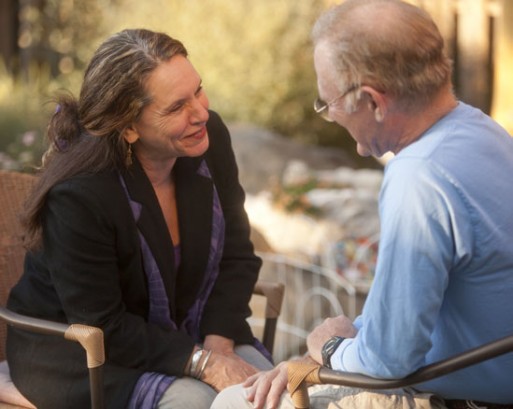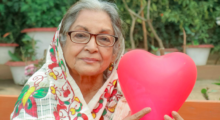Today, SevenPonds speaks with Terri Daniel, founder of the Annual Afterlife Conference. A author, hospice worker and intuitive spiritual counselor, Terri provides tools such as meditation, intuition development and after-death communication to help those in grief navigate the dying process. She seeks to help other understand the connection between a death and the meaningful growth that arises because of it. Today, she speaks with us about the Annual Afterlife Conference, a gathering of “mystics and mediums, ministers and medics” who discuss the end of life and the survival of the consciousness. Based in Portland, Oregon, where Terri now lives, the conference is in its fourth year.
Christopher: What is the Annual Afterlife Conference?
Terri: It’s a national dialogue about death, dying and beyond—by which I mean the survival of consciousness beyond physical death. Some of the key people presenting are Dr. Even Alexander and Dr. Raymond Moody, both of whom will talk about near-death experience. Attendees are an equal mix of hospice workers, nurses, chaplains, doctors, social workers, spiritual seekers and bereaved people. Each category makes up about a third of the conference.
Christopher: Can you say more about spiritual seekers?
Terri: Spiritual seekers are people interested in out-of-body experiences. They’ve either had near death experiences themselves or want to learn more about them. They’re looking for metaphysical understandings of death and what exists beyond the physical body.
Christopher: What other kind of presentations will there be?
Terri: Other key presentations are on home funerals, or providing instructions and practices for conscious dying. There are workshops on after-death communication through dreams and mediums. The conference is all about starting with process of death, going through grief and understanding that consciousness continues after the body dies.
The Annual Afterlife Conference opens a national dialogue about death, dying and beyond—by which I mean the survival of consciousness beyond physical death.
Christopher: Could you say a bit more about talking through mediums?
Terri: There are organizations and universities that have done legitimate academic studies on mediums.This year, Gary Schwartz from the University of Arizona will be there with Suzanne Northrop, one of the mediums he did a study on for his research. One year, in a room of 300 people, Suzanne said she saw 2 horses, a white one and black one, galloping across the room. “Did these belong to anyone?” she asked. Sure enough, someone stands up and said, “my horses died in a barn-fire six months ago—a white one and a black one!” In another example, Suzanne sensed a 12-year old boy with a bicycle in the corner of the room: “did anyone have a child who died on a bicycle around that age?” And woman stood up, crying, and said that that was her son who was hit by truck last spring. The medium then said, “well he’s showing me a piano—did he play piano?” and the boy’s mother screamed, “Yes! He was music prodigy!” It’s a very powerful experience for the bereaved.
Christopher: I’m interested in learning more about after-death communication through dreams. How does one cultivate this ability?
Terri: You don’t have to cultivate it; you’re already getting it. Many people say “I hear about so many people getting messages, but I never get messages from my dead loved one—except through dreams, where my late husband gives me roses” and I respond, “what do you think the dreams are? Don’t you see that the dream and the roses are the message?” The dead communicate with us through symbols. My friend’s sister just died and she had a collection of owls. Right after her death, my friend saw owls everywhere she went, like one in her backyard, though she’d never had one there ever before for 30 years of living in that house.
Read Terri’s “Ten Tips for Talking to the Other Side”
Christopher: So the conference sounds like a great way to open up a conversation that is very difficult to have in our culture.
Terri: Exactly. Talking about these events is part of healing. I can’t tell you how many people get these symbols or near-death experiences but don’t tell anybody. I volunteer as a hospital chaplain, so I work with the dying. Often, I talk to patients who identify as Christian or protestant of some form and many of them will admit to me they’ve had a near-death experience. But for the most part, many people have these experiences but don’t share because it’s forbidden in the Old Testament and laughed at in our culture. So people just shut it down. Providing a safe place to share these experiences is very important for the bereaved.
The dead communicate with us through symbols.
Christopher: How do these conversations help the grieving process?
Terri: As I say in my book, Turning a corner on Grief St., many people never really heal from their grief because they aren’t given the right tools. Let’s say someone loses someone in a freak accident like a drunk driving incident. They may feel very angry, but they aren’t given the spiritual care to work through that anger, so they stay angry their whole life. I’ve met people who are still so angry over a death that happened 20 years ago. And they’ll say “’I’ll never forgive the person driving that car.” But the driver doesn’t know and doesn’t care. Anger does nothing but keep the person from healing. It’s important, then, to realize that nothing in the universe is random. Everything works together like pieces in a kaleidoscope. There’s meaning in every event. It doesn’t diminish the pain, but if you can find meaning in loss and can understand that something else is going to grow out of it, you’ll start to heal.
Christopher: So what is youre niche or entrance into the conference?
Terri: 7 years ago, my son died. He was 16. I quickly found that most grief resources are very limited because I’ve always been a metaphysically minded, spiritual and intuitive person. There was nothing I could find that was useful to me to work through my grief. I found it through non-mainstream places. Who was this little soul that came into my life? What, metaphysically speaking, was the purpose of all this and what am I supposed to do now? I couldn’t find any answers to these questions in grief support groups, so I started this conference.
It’s important, then, to realize that nothing in the universe is random. Everything works together like pieces in a kaleidoscope. There’s meaning in every event.
Christopher: Is there anything else you’d like our readers to know?
Terri: Grief doesn’t have to be annihilating. It can be enlightening.
Christopher: Thank you for speaking with us today, Terri!
Terri: Of course!
More on spirituality from SevenPonds:
- Book Review: Gilead by Marilynne Robinson
- Comfort and Communication: The Presence of Loved Ones Even After Death
- Grief as a Gateway to the Divine

 How Can Afterlife Communication Aid The Grieving Process? An Interview With Terri Daniel
How Can Afterlife Communication Aid The Grieving Process? An Interview With Terri Daniel





 “Summons” by Aurora Levins Morales
“Summons” by Aurora Levins Morales
 How To Dispose of a Body In Space
How To Dispose of a Body In Space
 AMA Adopts New Policies Expanding Access to Palliative Care
AMA Adopts New Policies Expanding Access to Palliative Care














